Zoom SAML integration
Multi-factor authentication (MFA) is an extra layer of security used when logging into websites or apps to authenticate users through more than one required security and validation procedure that only they know or have access to. Security Assertion Markup Language (SAML) is a protocol for authenticating to web applications. SAML allows federated apps and organizations to communicate and trust one another’s users.
Acceptto™, as a SAML provider, improves the user login experience for Zoom users with convenient MFA, and offers a simple SAML solution for adding Multi-Factor Authentication (MFA) and single sign-on (SSO) to Zoom.
Prerequisites
An Acceptto account with a configured Identity Provider and LDAP Agent.
For more information, see the LDAP Agent deployment guide.
A user with administrative privileges for the Zoom panel.
Acceptto SAML Configuration as Identity Provider (IdP)
Login to the Acceptto Dashboard with an administrative account and go to Applications.
Create a new application by selecting the Create New Application.
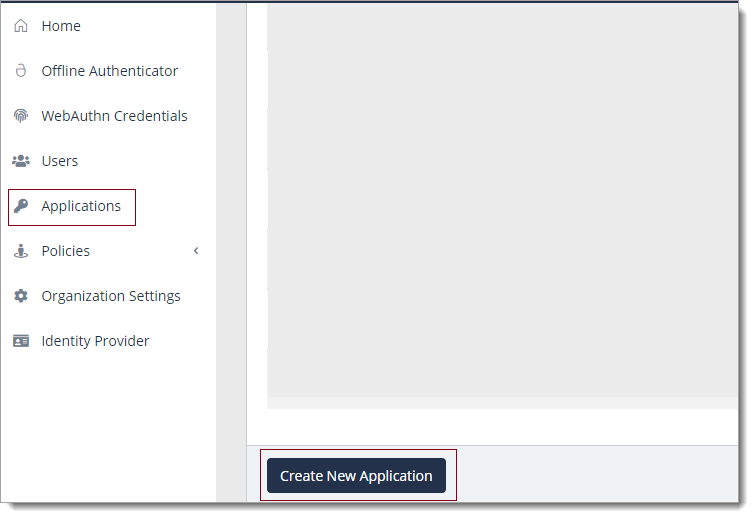
In the New Application form, enter the following values under the General tab.
Name - The application name displayed in the admin panel and application portal and used for push notifications and audit logs (e.g.Zoom)
Type - Select "SAML Service Provider" from the options
Out of Band Methods - Select the allowed methods for approving MFA requests
Message for MFA Requests - Enter the user-facing message for Push, SMS, and email MFA requests (optional)
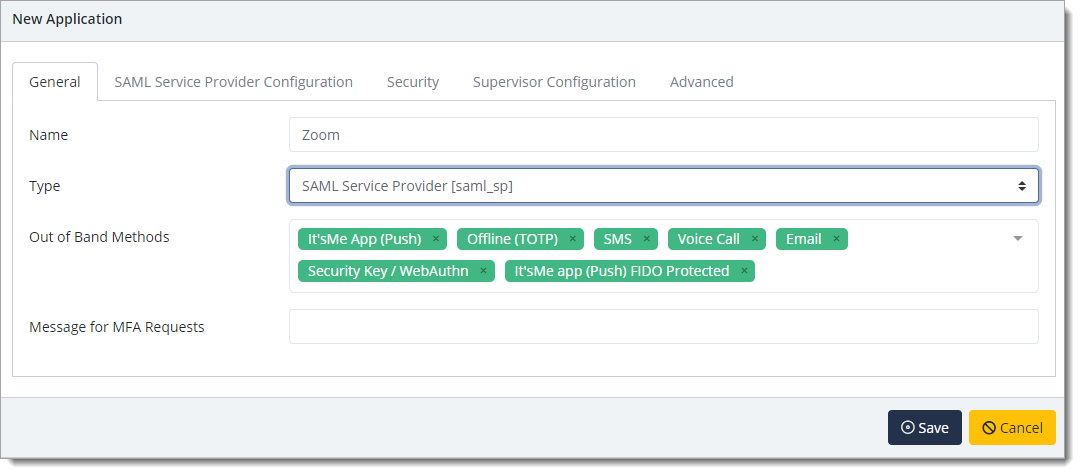
Under the SAML Service Provider Configuration tab, enter the following values:
Issuer or Entity ID – Enter the Issuer/EntityID of your Zoom instance.
Sign in URL - The URL used to login to your Zoom panel.
NameID Format - Select "Unspecified" from the dropdown menu.
Name Identifier - Select "Email" from the dropdown menu.
Assertion Consumer Service - ACS URL of Zoom.
Algorithm: RSA-SHA256
(Optional) To configure the user attributes used by Zoom to provision new user accounts, click the add button in the Asserted Attributes section. Add the following values:
Friendly Name
Name
Value
Name Format
Last
urn:oid:2.5.4.4
sn
Unspecific
Email
urn:oid:0.9.2342.19200300. 100.1.3
mail
URI
First
urn:oid:2.5.4.42
given_name
URI
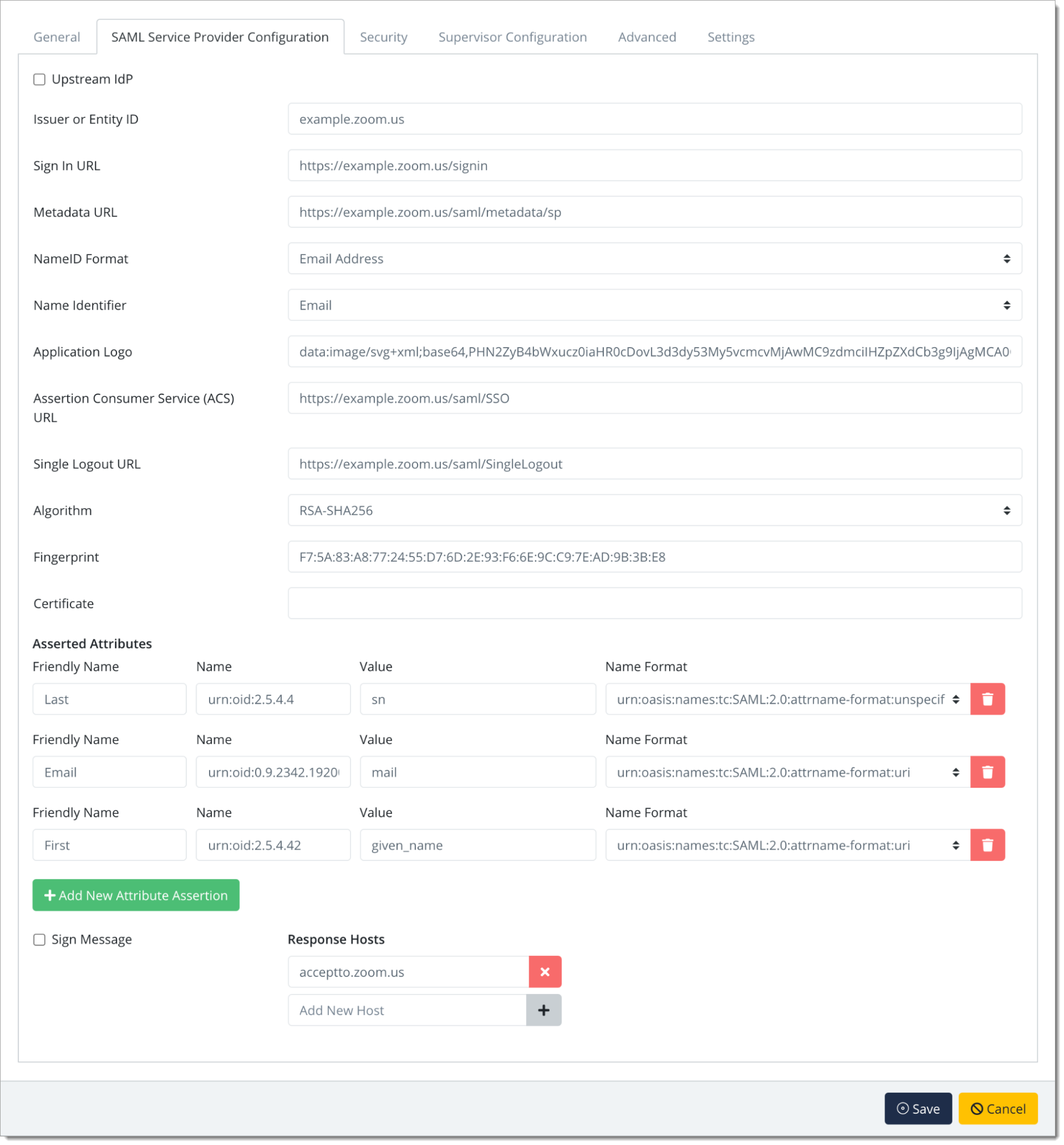
Click Save.
NOTE: If you have selected "Provision User: Prior to Sign-In" on Zoom, you must add users to your account to allow them to access Zoom using SSO.
Configure Zoom as SAML Service Provider
Download the SAML metadata and certificate for your organization from Acceptto.
Metadata Download at
https://sso.acceptto.com/<myorganization>/saml/download/metadataor view athttps://sso.acceptto.com/<myorganization>/saml/metadataCertificate Download at
https://sso.acceptto.com/<myorganization>/saml/download/certLog into your Zoom panel. Navigate to Advanced > Single Sign-On, then click on Enable Single Sign-On.
Enter your Acceptto Identity Provider information:
Sign-in Page URL -
https://sso.acceptto.com/your-organization/saml/authSign-out Page URL -
https://sso.acceptto.com/your-organization/saml/logoutIdentity provider certificate - open the file that was earlier downloaded from Acceptto and copy the certificate to the Zoom form.
Note: Remove the Begin Certificate and End Certificate lines from the certificate file.
Service Provider (SP) Entity ID - [your-subdomain].zoom.us
Issuer (IDP Entity ID) -
https://sso.acceptto.com/your-organization/saml**Binding **- Select HTTP-Redirect. Signature Hash Algorithm - SHA-256. Security - Select "Sign SAML Logout request"
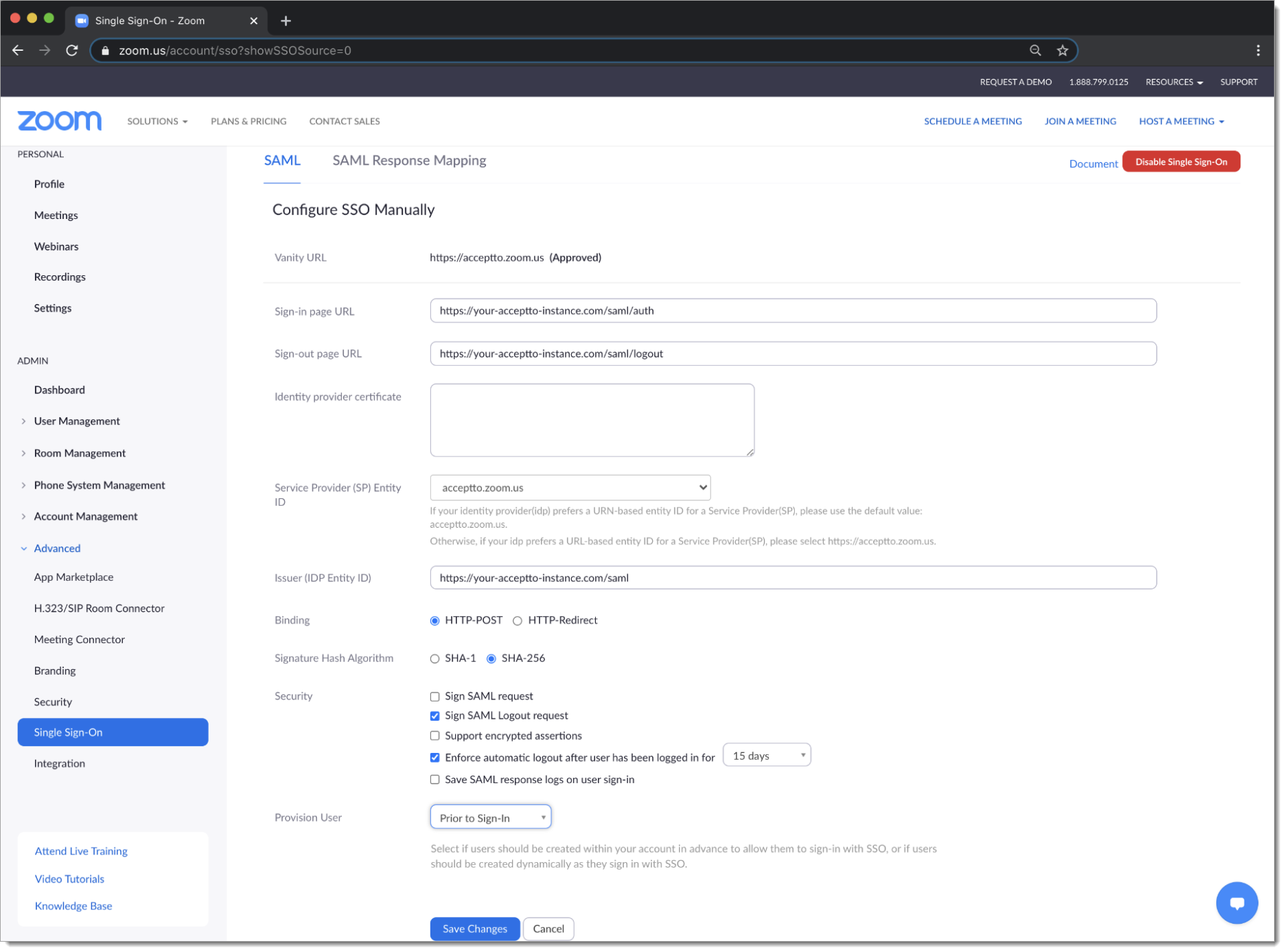
Click Save Changes.
Test your application integration
Log into your Zoom tenant. Click on Sign In.
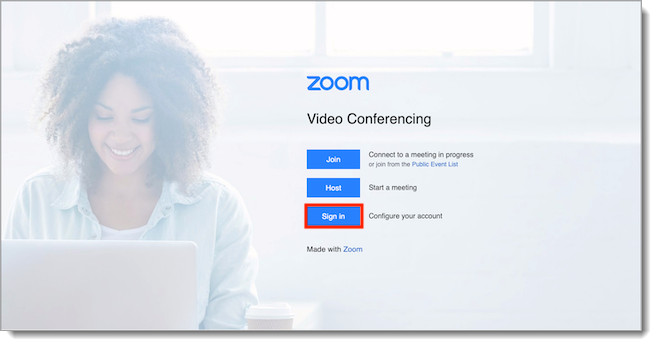
You will be redirected to the Acceptto single sign-on provider to sign in.
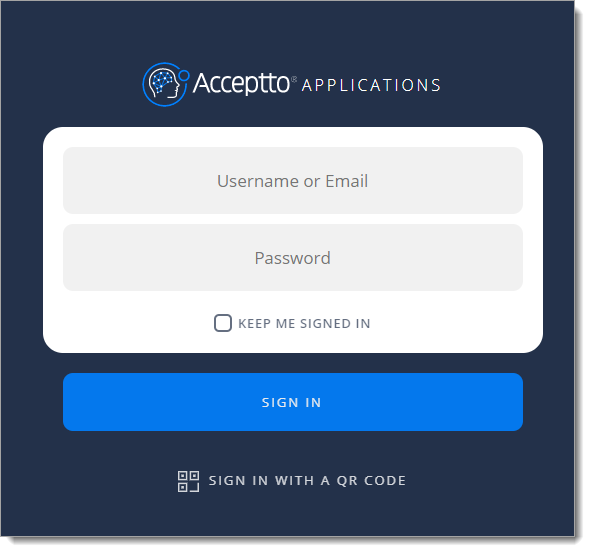
After successful authentication, you’ll see Acceptto’s authenticator options. Select the desired method and approve the verification stage.
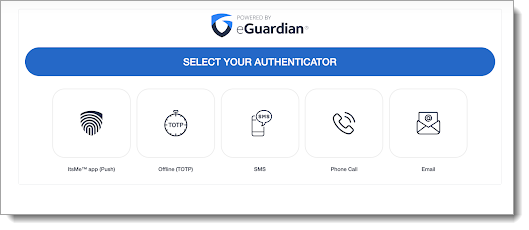
Finally, you will be redirected to your Zoom page.
Support
If you have questions or need assistance, contact SecureAuth Support.
Sales
Want to learn more about our MFA solutions? Contact our Professional Services for a demo today.
Disclaimer
All product names, trademarks, and registered trademarks are the property of their respective owners.
All company, product, and service names used in this document are for identification purposes only. The use of these names, trademarks, and brands do not constitute an endorsement by the SecureAuth Corporation.